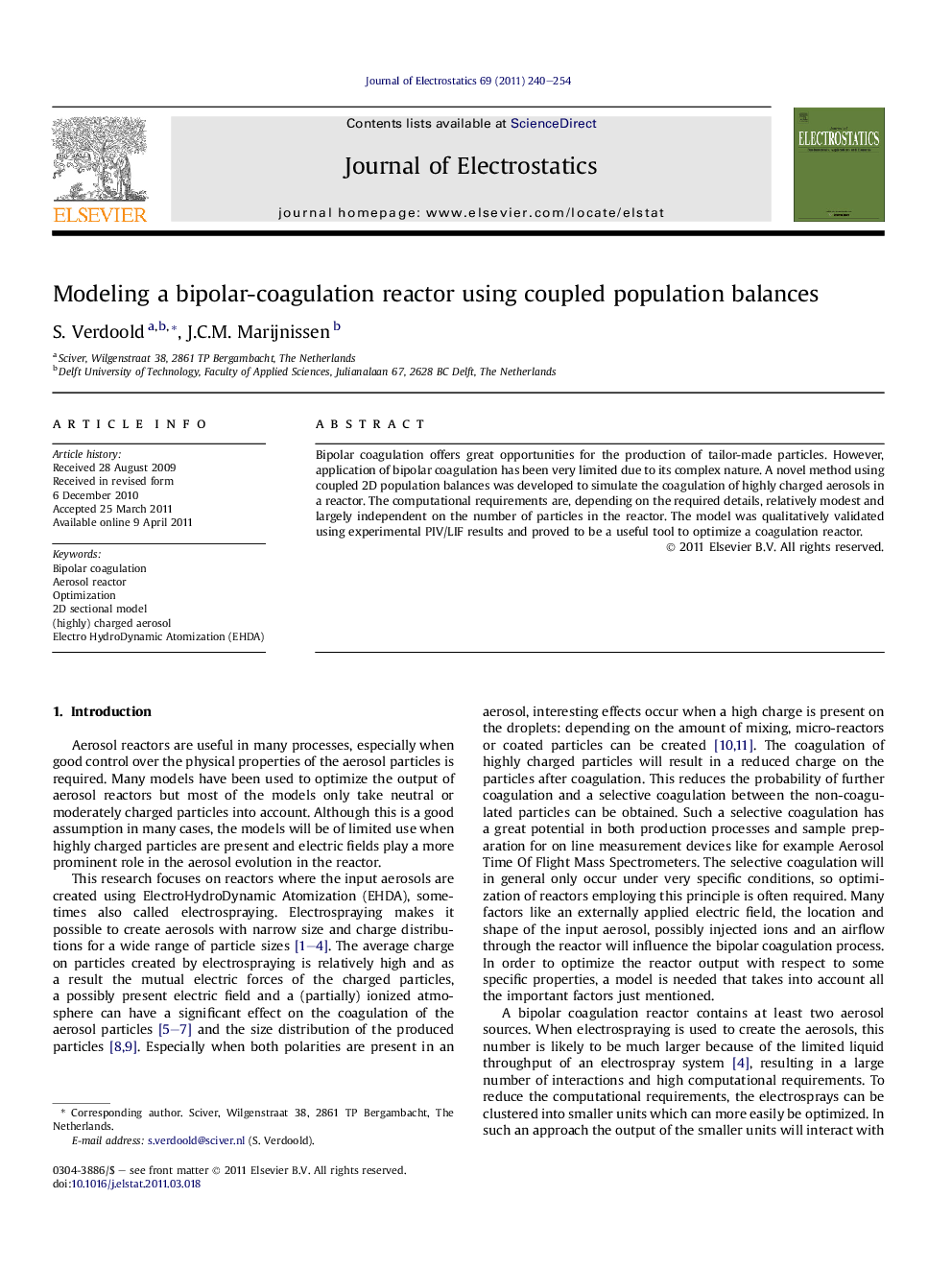| Article ID | Journal | Published Year | Pages | File Type |
|---|---|---|---|---|
| 727124 | Journal of Electrostatics | 2011 | 15 Pages |
Bipolar coagulation offers great opportunities for the production of tailor-made particles. However, application of bipolar coagulation has been very limited due to its complex nature. A novel method using coupled 2D population balances was developed to simulate the coagulation of highly charged aerosols in a reactor. The computational requirements are, depending on the required details, relatively modest and largely independent on the number of particles in the reactor. The model was qualitatively validated using experimental PIV/LIF results and proved to be a useful tool to optimize a coagulation reactor.
► We model a bipolar coagulation reactor using coupled population balances. ► The computational requirements are modest and largely independent of the number of particles in the reactor. ► The model was qualitatively validated using experimental PIV/LIF measurements. ► Electro HydroDynamic Atomization (electrospraying) was used to create (highly) charged particles in the experiments. ► The model was shown to be helpful in the optimization of a bipolar coagulation reactor.
